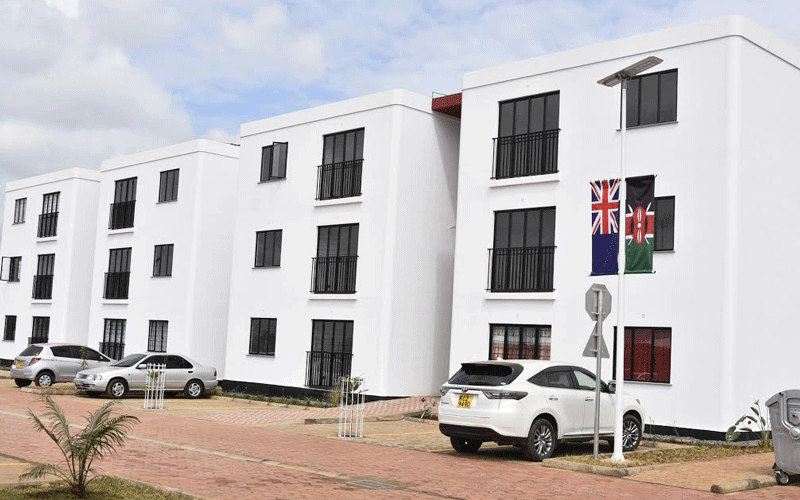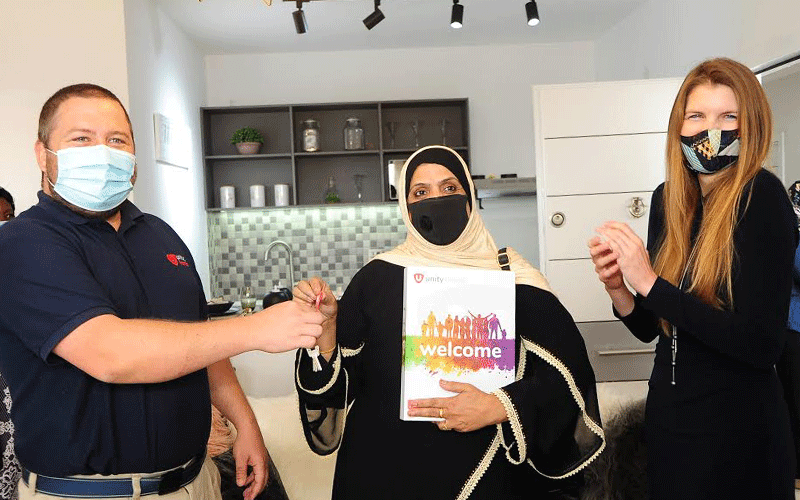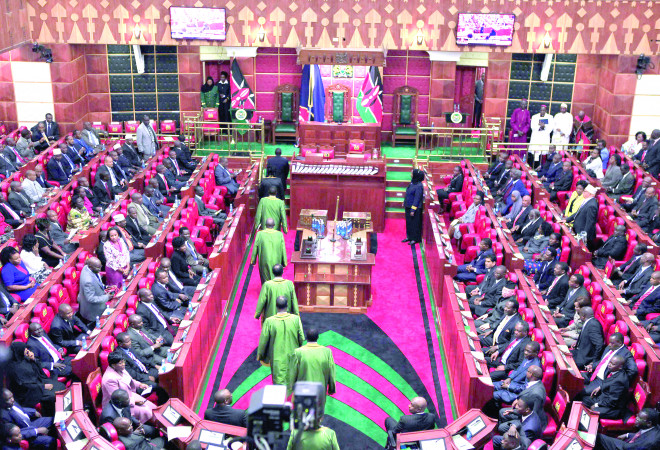Developers bet on cheap homes to ride on State housing project

As developers struggle to put-up more low-cost houses into the market to narrow the huge housing deficit inspired by rapid population growth, scarce and costly land for construction, and slow economic growth, companies continue to supplement the government’s efforts to achieve its affordable housing agenda.
Both local and international real estate companies have identified the unmet housing need and are pulling resources with hopes to meet the annual housing demand of 250,000 units.
Currently, companies are only able to make an estimated supply of 50,000 units, culminating in a housing deficit of 200,000 units, or 80 per cent.
Most challenged are the lower-middle income earning Kenyans who form 70 per cent of the huge housing shortfall owing to their low-saving culture, economic frustrations and fear of seeking development loans.
However, companies such as Unity Homes have committed to bridging the gap by creating at least 500,000 new homes by 2022 thereby contributing to the Government’s Big 4 Agenda.
Families hoping to acquire a home desire to secure one in an environment that allows for children to flourish.
This has pushed developers to construct homes in areas that guarantee security, with easy access to social amenities such as schools, shopping districts, proximity to hospitals, areas with vegetation as well as near sporting centres.
According to John Latham, the executive director at Unity Homes, such environments assure buyers a steady appreciation in property value and a quick return on investment.
Speaking during the official handover of 48 complete units to new owners at Tatu City in Ruiru, Kiambu county, a project undertaken in collaboration between Unity Homes, a British company and the Kenya government, Latham said Unity Homes is driven by the desire to see as many Kenyans as possible access good housing in a safe, secure and modern environment.
“The two-bedroom apartments costs start at Sh4.75 million (USD 44,000), placing them within reach of middle-income earners,” he said.
One year after breaking ground on the Sh4.5 billion project, another 48 units are expected to be handed over to owners in October 2020, and the entire 384-unit first phase of the project will be completed by the end of 2022.
The units, according to Latham are part of a plan by Tatu City to partner with leading Kenyan homebuilders to construct more than 30,000 homes at the 5,000-acre new city, which is a major private sector contributor to the government’s housing agenda.

While officiating the handover, the British High Commissioner to Kenya, Jane Marriott, termed completion of the first collection of the units as a testament to Kenya’s partnership with international companies on affordable housing.
“This provides Kenyans with quality, eco-friendly homes in support of the government’s Big Four agenda,” she said.
Evans Dimba, Kenya Country Deputy Head for Rendeavour, the company representing a consortium of investors into Tatu City that is speicalised in land development, noted that housing projects being undertaken by local and international companies will catalyse the affordable housing agenda.
“Initiatives and collaborations like these will help deliver, in a very big way the government’s Big Four Agenda,” he said.
Local companies have also not been left behind in pushing to support Kenyans’ bid to own homes at affordable rates.
Poor financing for housing projects, land related crisis, bureaucracy at local authorities have, however been cited as having slowed construction works, increasing the time set for delivery of projects.
Most affected are young and upcoming real estate companies ,which survive on bank loans to put up housing projects.
According to Ndanga Mukuha Builarchs Kenya Limited CEO Mukuha Mwangi, the government should engage public-private partnership to spur accurate achievement of the desired housing units.
The young company that is currently undertaking projects in Kitengela, Ruiru, Gikambura, Kenol and Gatundu North, he said cannot survive without a good investment environment and the government should encourage such to hasten its housing objective.
“Because of our low-capital investment, we only have a projection of doing 500 housing units by 2022, but I believe that if we are complemented by major companies and the government efforts, we can achieve the affordable housing goal,” said Mukuha.
Belasi Developers, a commercial property transaction management and leasing services company continues to suffer a similar financial predicament.
While they are committed to building 5,000 housing units as part of their contribution to thereby reducing the housing deficit, Maxwel Mburu, the managing director says they have been grappling with financial challenges, especially for them as they rely on the payments from the clients to sustain the developments.
“Our financial institutions are not very supportive of this agenda either. This needs a very radical intervention by the government if most Kenyans will become homeowners.
The benchmarks for most banks to lend are set so high thus blocking many people from accessing easy credit for home ownership purposes,” he said.
Not yet operational
Mburu, however, thanked the government for introducing the Mortgage Refinancing company, but decried that despite the introduction and a colourful launch, it is yet to be operational.
He cited that the cost of the land is the most prohibitive element in the delivery of affordable housing Agenda.
“The uptake and demand for land is there, especially during this Covid -19 disruption as most people have realised the need to own houses, especially those constructed with own compounds.
The land pricing is however overly high and this challenge has left many out of the dream,” he said.
When he was sworn in for his second term in office, President Uhuru Kenyatta outlined his vision for development dubbed the Big Four Agendas which fall under four pillars of food security, manufacturing, universal health coverage and affordable housing.
In the affordable housing agenda, President Uhuru’s government hopes to construct at least 500,000 housing units across the country by 2022.















